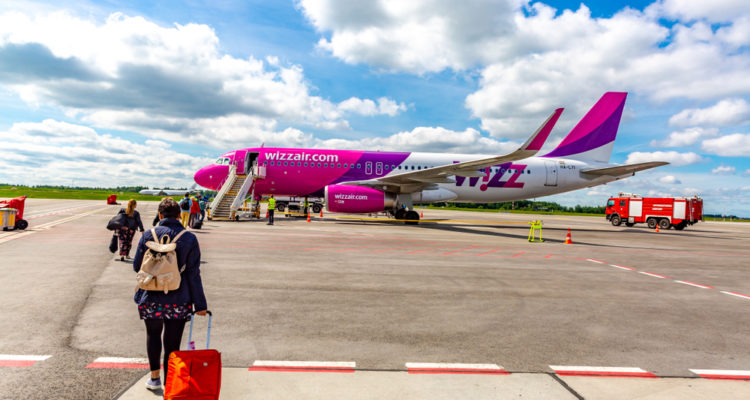ARTICLE AD BOX

(Shutterstock)
(Shutterstock)
Wizz Air returns as major airlines extend Israel flight ban
The Knesset’s Economic Affairs Committee is also working to amend consumer protection laws regarding flight cancellation compensation.
Major airlines are continuing their flight freeze to Israel despite intense pressure from top aviation officials, while a handful of smaller European carriers trickle back to limited routes.
The slow return of international flights has frustrated Israeli aviation officials, who have watched most major carriers extend their cancellations after a northern cease-fire took effect three weeks ago.
Among U.S. carriers, American Airlines has pushed back service until September 2025, while United Airlines has scrubbed Israel completely from its schedule. Delta Air Lines and Air Canada have suspended flights through March.
Wizz Air represents one of the few bright spots, announcing a restart of service last week between Tel Aviv and Larnaca with four weekly flights.
The Hungarian budget carrier is offering promotional fares of 50 euros for the first 1,000 tickets on the route. However, it marks a dramatic reduction from Wizz Air’s pre-war service, which included flights to Milan, Warsaw, Vienna, Budapest, and London.
As for other European airlines, only three have returned to Israeli skies. LOT Polish Airlines is operating daily flights to Warsaw with potential future expansion. Air Europa has restored Madrid connections, while Aegean Airlines is serving Athens and Larnaca routes.
Meanwhile, the exodus of carriers continues to grow.
Air France has suspended service through January 9, while the entire Lufthansa Group – including Swiss, Austrian, Brussels Airlines, and Eurowings – won’t return until February. Rome-based ITA Airways is also holding off until February.
Budget giants Ryanair and EasyJet have announced they won’t consider returning until April at the earliest, while British Airways has canceled through March.
Israel’s Transportation Ministry and Civil Aviation Authority are continuing to press carriers to resume service, but obviously with limited success.
“This is a very slow and gradual, if not disappointing, return,” a senior Israeli aviation official tells Haaretz.
“Every event that takes place is an additional warning sign for the airlines. They aren’t in any hurry to announce their return to Israel; as far as they’re concerned, the war isn’t over even if the northern front is quiet.”
The Knesset’s Economic Affairs Committee is also working to amend consumer protection laws regarding flight cancellation compensation.
However, ongoing concerns about insurance costs, risk management, and crew accommodations in Israel continue to deter carriers from committing to resumed service.

 4 days ago
19
4 days ago
19









 English (US) ·
English (US) ·